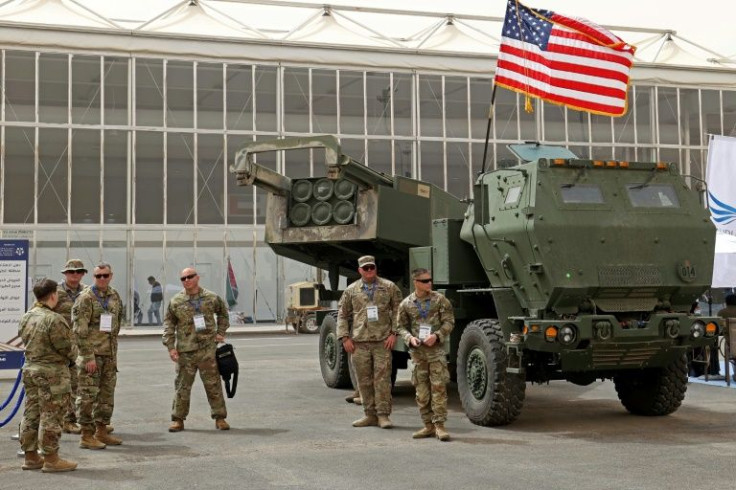US Military Budget To Reach $858 Billion As China, Russia Threats Grow

KEY POINTS
- Lawmakers increased Biden's NDAA request by $45 billion, allowing more military spending amid threats from Russia and China
- The military spending bill would authorize $800 million of additional security assistance for Ukraine
- The NDAA would also fund a five-year, $10 billion defense modernization program for Taiwan
Congress has approved a bill authorizing a record $858 billion in annual military spending as the country looks to increase its weapons production to thwart any threats from China and Russia.
The Senate overwhelmingly passed Thursday the National Defense Authorization Act (NDAA), 83-11, as most members of both sides of the aisle united to fund the military in the face of the growing threats from the rival countries.
Following the approval of the House of Representatives, the defense spending bill now awaits the signature of President Joe Biden.
The approved military budget is $45 billion above what Biden had earlier requested.
Lawmakers included $800 million of additional security assistance for Ukraine in 2023 as the war will most likely drag into the new year.
The NDAA would empower the federal government to pay the defense manufacturing industry to produce weapons for Ukraine, CNN reported.
The approved measure would also streamline acquisition requirements and authorize multiyear procurement for certain munitions in a bid to reduce bureaucratic red tape and speed up the production of weapons for Ukraine.
The NDAA would also fund a new defense modernization program for Taiwan $10 billion over the next five years amid China's growing pressure and intimidation.
The program aims to enhance training and collaboration between the U.S. and Taiwanese militaries.
The bill would also authorize the President to provide Taiwan with up to $1 billion worth of weapons and munitions.
Mark Cancian, a senior adviser at the think tank Center for Strategic and International Studies, said the new funding for Taiwan would create a regional contingency stockpile, allowing Pentagon to put weapons in the island nation.
Since the war in Ukraine began in February, the Biden administration has usually drawn weapons and other equipment out of the U.S. military stockpile to supply the Ukrainian forces.
The bill would allow the military to replenish its dwindling stockpile.
Lockheed Martin had booked more than $950 million worth of missile military orders from the Pentagon, according to the New York Times.
Raytheon Technologies was awarded $2 billion in contracts by the Army to expand or replenish its missile systems.
Army Secretary Christine Wormuth said they are coordinating with the defense industry to ramp up production to replenish supplies and meet the growing demands for new weapons.
"We're going to ramp up," Wormuth said, according to the Times. "We've really been working closely with industry to both increase their capacity and also the speed at which they're able to produce."
The NDAA would also include new funding for the development of hypersonic weapons.
In September, Raytheon and Northrop Grumman won a $1 billion contract to build prototype hypersonic weapons for the Air Force.

© Copyright IBTimes 2024. All rights reserved.





















